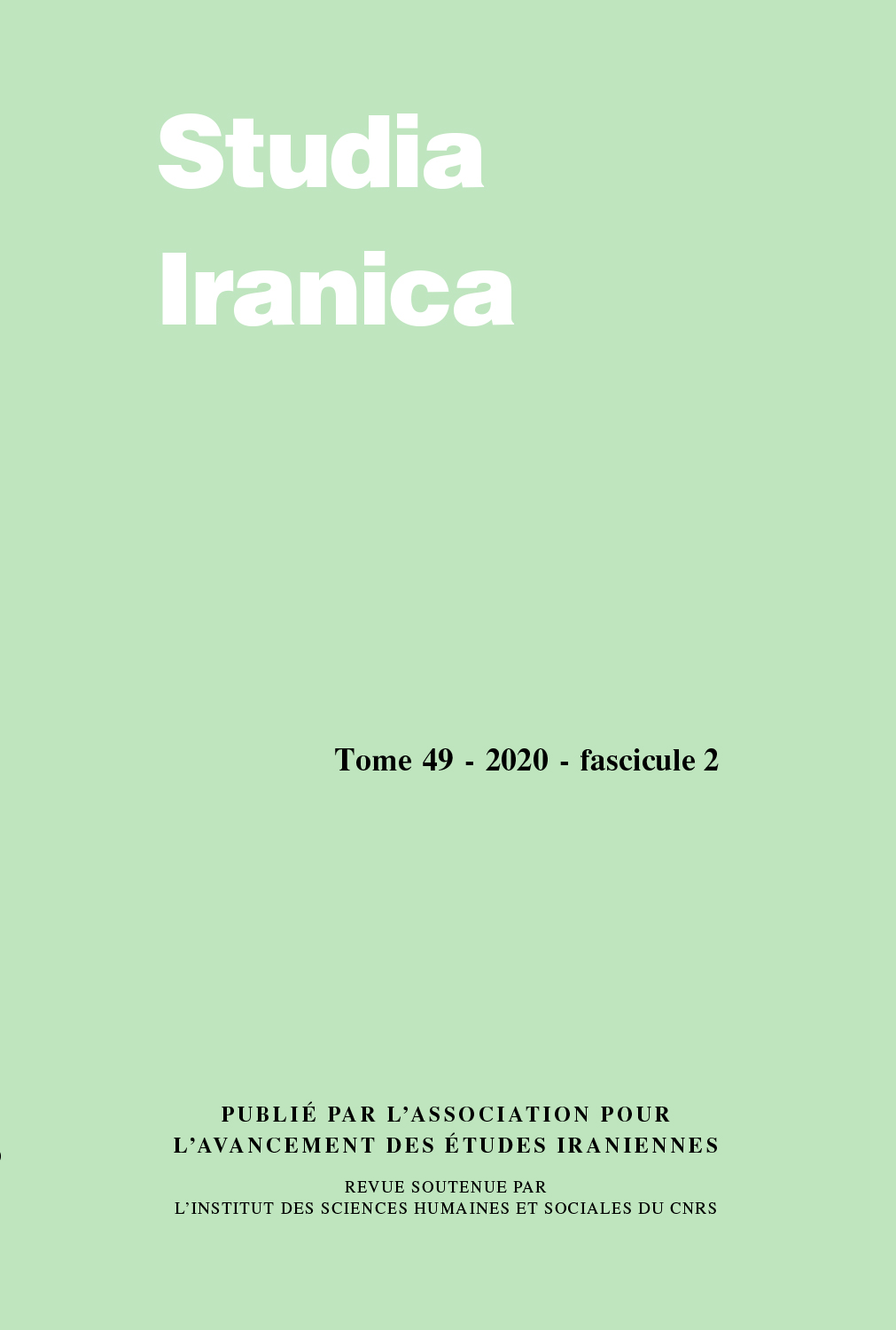 previous article in this issue previous article in this issue | next article in this issue  |

Preview first page |
Document Details : Title: Aux origines du čahārpāre Author(s): AHMED, Amr Taher Journal: Studia Iranica Volume: 40 Issue: 2 Date: 2011 Pages: 259-282 DOI: 10.2143/SI.40.2.2143392 Abstract : Dans la deuxième décennie du XXe siècle, une nouvelle forme poétique régulière voyait le jour dans la langue persane. Cette forme, que nous connaissons aujourd’hui sous le nom de čahārpāre, apparaissait à un moment charnière de l’histoire littéraire iranienne. Son développement coïncide en effet avec le mouvement dit de la «Révolution littéraire», qui allait déboucher sur la poésie persane moderne. Revendiqué par deux groupes de poètes rivaux – «conservateurs» et «progressistes» –, cet élan de renouveau fut marqué en particulier par l’influence accrue de la poésie occidentale. Les spécificités de ce nouveau type de poème n’ont jamais fait l’objet d’un examen approfondi. Le présent article entend démontrer que le čahārpāre condense à lui seul les enjeux de l’époque qui le vit naître. Inspiré du quatrain français, forme inédite en persan, il accomplissait un certain idéal de la «Révolution littéraire» : celui des réformistes «conservateurs», émules de Victor Hugo et des Romantiques français. In the second decade of the 20th century, a new poetic form came into being in the Persian language. The čahārpāre, as it is referred to nowadays, appeared at a critical time in Iranian literary history. It developed in the context of the 'Literary Revolution', which would later give rise to modern Persian poetry. Claimed by two antagonist parties — the 'Conservative' and the 'Progressivist' poets — this surge of literary rejuvenation was characterized, among other things, by the increased influence of Western poetry. The characteristics of this new type of poem have not raised much scholarly attention as of yet. The present article aims to show that, in its origins, the čahārpāre embodied the main issues of its time. Inspired by the French quatrain — a form unknown to the Persian tradition — it accomplished a certain ideal of the Iranian 'Literary revolution': that of the 'Conservative' reformists, followers of Victor Hugo and of the French Romantics. |
|


